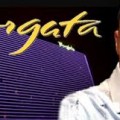
Invisible Ink Poker Cheat Banned from Connecticut Casinos

Bruce Koloshi marked cards to win at Mississippi Stud Poker at Mohegan Sun. (Image: pokerpt.com)
Invisible ink has long been a popular way for everyone from spies to small children to hide messages in plain sight. It’s also popular as a way to mark objects to be scanned later, such as allowing people admission to an amusement park or as an anti-counterfeiting measure on paper money. It’s the perfect way to make sure you have information that others aren’t privy to, something that’s invaluable in the world of gambling.
That’s why invisible ink was the key to a cheating plan for Bruce Koloshi, a gambler who eventually pleaded guilty to cheating in New London Superior Court in Connecticut. Last September, Koloshi visited the Mohegan Sun and sat down at a Mississippi Stud Poker table in an attempt to win some money. The game, a table game that emulates the action of Texas Hold’em poker, normally has a house edge. But he had a secret weapon: invisible ink with which he was marking the cards.
Ink Spotted on Black-and-White Footage
Koloshi wore special contact lenses that allowed him to see the marked cards, giving him a dramatic edge over the house. But while he believed he was the only one who could see the ink, it turned out that there was another way for casino security to prove he wasn’t playing within the rules.
When casino surveillance personnel watched the video in black-and-white, rather than in color, Koloshi’s scheme became clear. Once a surveillance operator at Mohegan Sun did so, the state police were called to arrest Koloshi. Last week, he was sentenced to 10 months time served and was barred from all casinos in Connecticut.
This wasn’t the first time that Koloshi had attempted to use the scheme. According to reports, he said he had engaged in the cheating at Mohegan Sun primarily to win money he could use to make bail in Louisiana, where he was facing charges for the same crime. Court papers say that Koloshi agreed to surrender to Louisiana authorities.
Casinos Alerted After Delaware Incident
But Mohegan Sun was on the lookout for Koloshi because of another incident, one that took place in Delaware back in February 2013. At the time, Koloshi won big at Delaware Park Casino. A little too big, in fact: because his winnings were more than $10,000, he would have to provide identification if he tried to cash out.
“We think that he messed up by winning the pot,” said Lieutenant Marshall Craft of the Delaware State Police. “What Koloshi’s M.O. was, he would win smaller pots so he didn’t bring attention to himself or have to provide identification.”
Koloshi left without claiming his money, but the incident caused Delaware’s Division of Gaming Enforcement to issue a bulletin on him. A surveillance operator at Mohegan Sun ultimately recognized Koloshi from a flier that was sent to them from Delaware.
When Koloshi was arrested in Mohegan Sun, police noticed that he was wearing both contact lenses and glasses, after which he admitted that the contacts were designed to let him see the marks he was making on the cards. Koloshi was apparently using a small piece of fabric with the ink on it in his jacket pocket to mark the cards. Koloshi reportedly has been convicted of cheating in Nevada, Iowa, and Illinois.















0 Comments